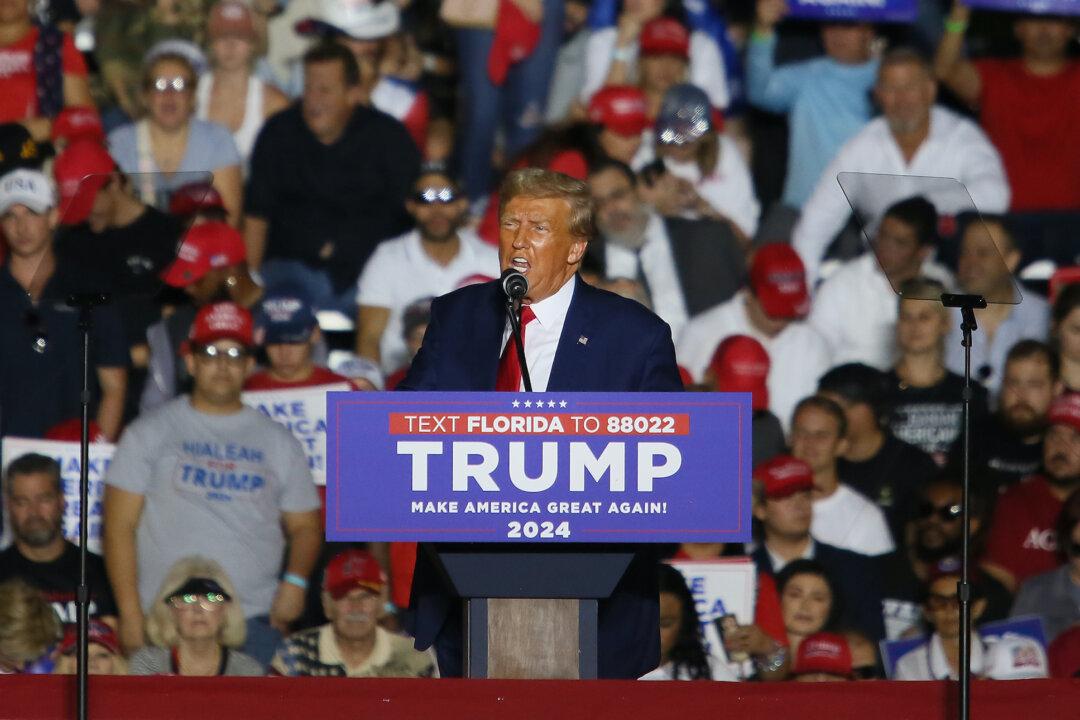Former President Donald Trump’s legal team has challenged a gag order on his ability to publicly discuss key aspects of his ongoing election-related prosecution during his reelection campaign in an appeals court.
In a Wednesday filing in the U.S. Court of Appeals for the District of Columbia, lawyers for President Trump launched a scathing critique of what they term a “sweeping prior restraint” on his political speech at the height of his reelection campaign.





